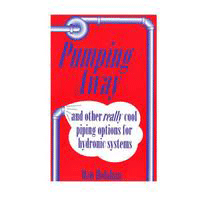How AI can increase distributors' inside sales effectiveness
Artificial intelligence helps sales teams make targeted sales efforts post-COVID.

According to a recent McKinsey report, more than 90% of B2B companies have shifted to a virtual or hybridized sales model due to COVID-19. Though dramatic, this shift reveals an emerging trend away from face-to-face sales.
The use of inside sales has helped companies cut sales costs by 40-90% while increasing revenues. But without proper support, inside sales reps can become overwhelmed because they have to manage lots of customers they’ve never met in person and have to keep up with massive product catalogs.
The solution: Artificial intelligence (AI)
Some people see AI as a purely digital phenomenon — either AI does not apply to sales teams or that it’s going to replace them entirely. AI solutions do have a big impact on sales, but it neither replaces them or bypasses them; it supercharges them.
For strategic distributors, this is very good news.
AI can help inside sales reps know which accounts to call, when to call them and what to pitch once they’re on the line.
AI tells inside sales reps who to call
Traditional CRMs cycle reps through different accounts to maintain regular contact with each customer. This is a better system than just calling at random, but it is nowhere near optimal especially in turbulent times.
Each account has its own unique purchase patterns and buying cycles and some may have shifted since the onset of COVID-19. Some customers make reorders at very specific and predictable times. When reps don’t account for the differences between accounts, sales are often missed. Why? They spend time with customers that don’t need their attention and miss out on talking with customers that do need their attention.
AI analyzes data from all customers and predicts when customers are at churn risk, due to reorder items or ready to buy new products. AI-supported CRMs can then use these predictions to regulate rep workflow, telling reps which accounts to call on and when. This way, reps can contact customers when they are actually ready to make purchases.
AI helps inside sales reps boost sales
AI sales tools use data from previous customer interactions to predict what items customers are most likely to buy and when. This means that within each sales call, AI-equipped inside sales reps can sell more with data-driven upsells, cross-sells and add-on recommendations.
Even when reps have access to each account’s purchase history, it’s time-consuming and difficult to manually translate a list of old purchases into a prediction about what the customer will buy that day. AI-recommendation engines analyze order history, customer profiles, location, time and intent data to help make accurate predictions about what customers want. This helps inside reps who may not always know customers as intimately as field sales reps.
When inside reps have access to this sort of recommendation engine, they acquire a synthetic knowledge of each account they can use to increase sales remotely. They learn exactly what their customers are due to reorder and what new products they might buy.
AI also enhances rep performance by coordinating information across channels. AI-based customer data platforms use data from multiple sales channels to make these product recommendations and workflow decisions. They also coordinate activity across channels. This means that your inside sales reps can hand accounts off to outside reps when the time is right, and personalize customer experiences based on activity from other channels.
This sets up your inside sales reps up to win within sales calls, between sales calls and across channels in an increasingly hybrid sales environment post-COVID. We’ve seen skilled inside sales reps supported by powerful AI capabilities dramatically outperform their unsupported counterparts.
Looking for a reprint of this article?
From high-res PDFs to custom plaques, order your copy today!






